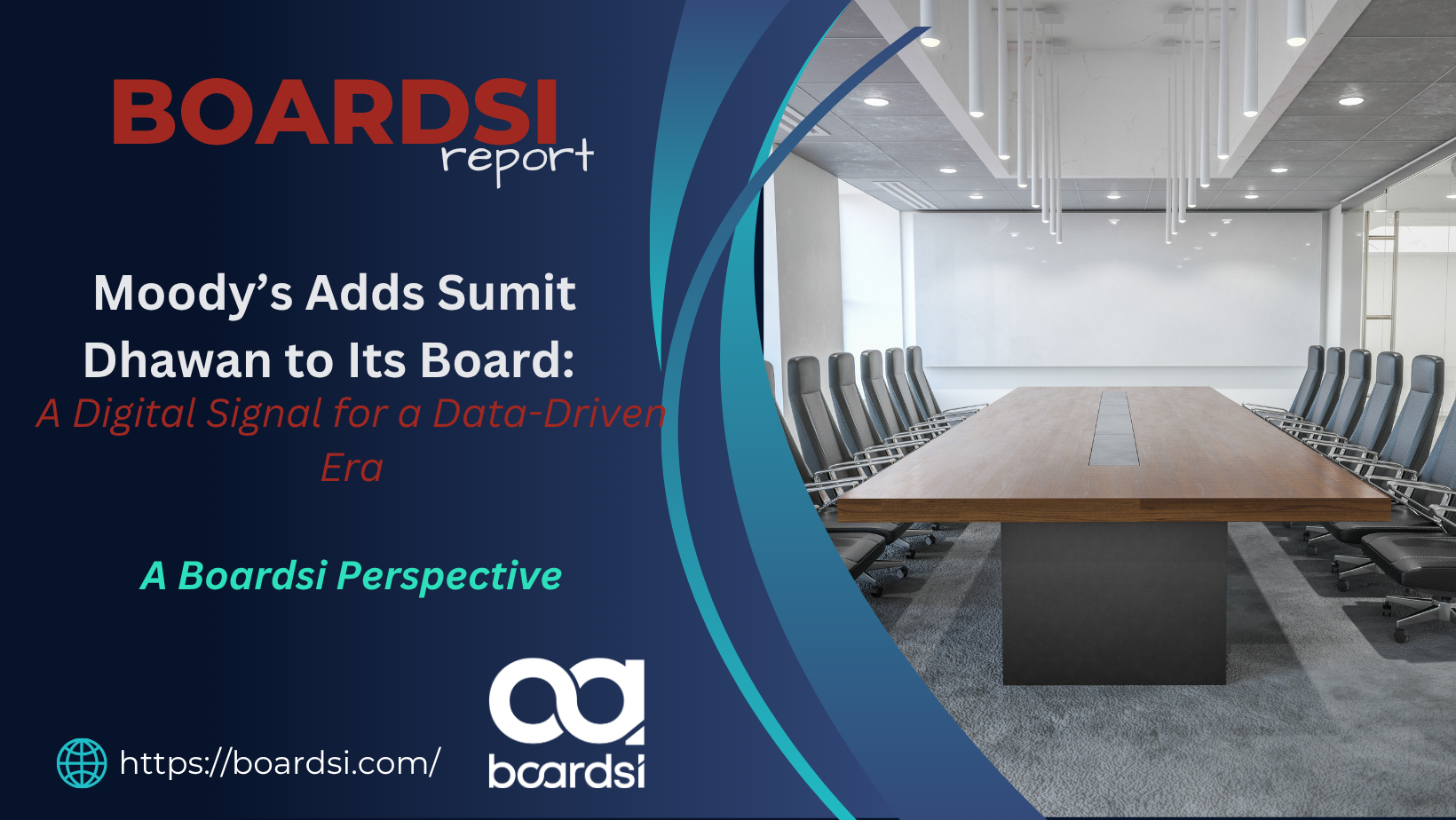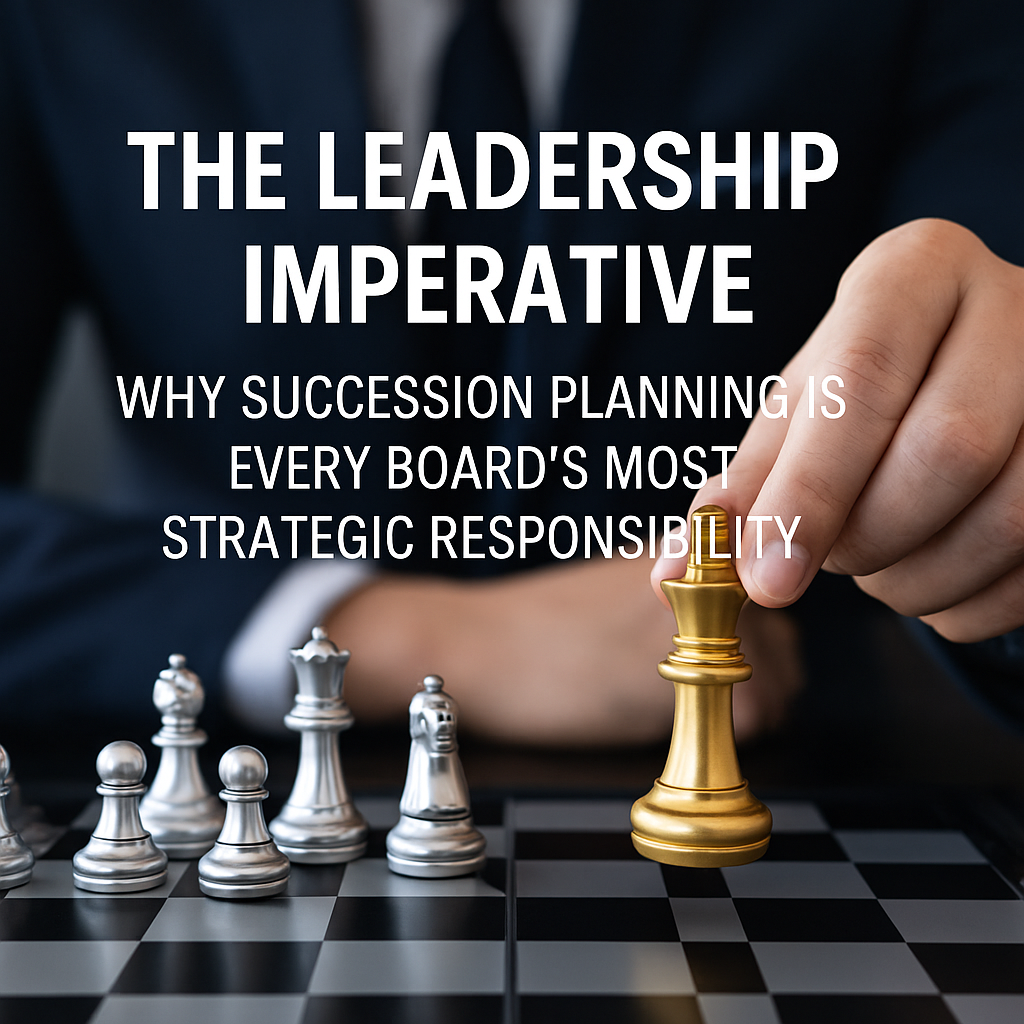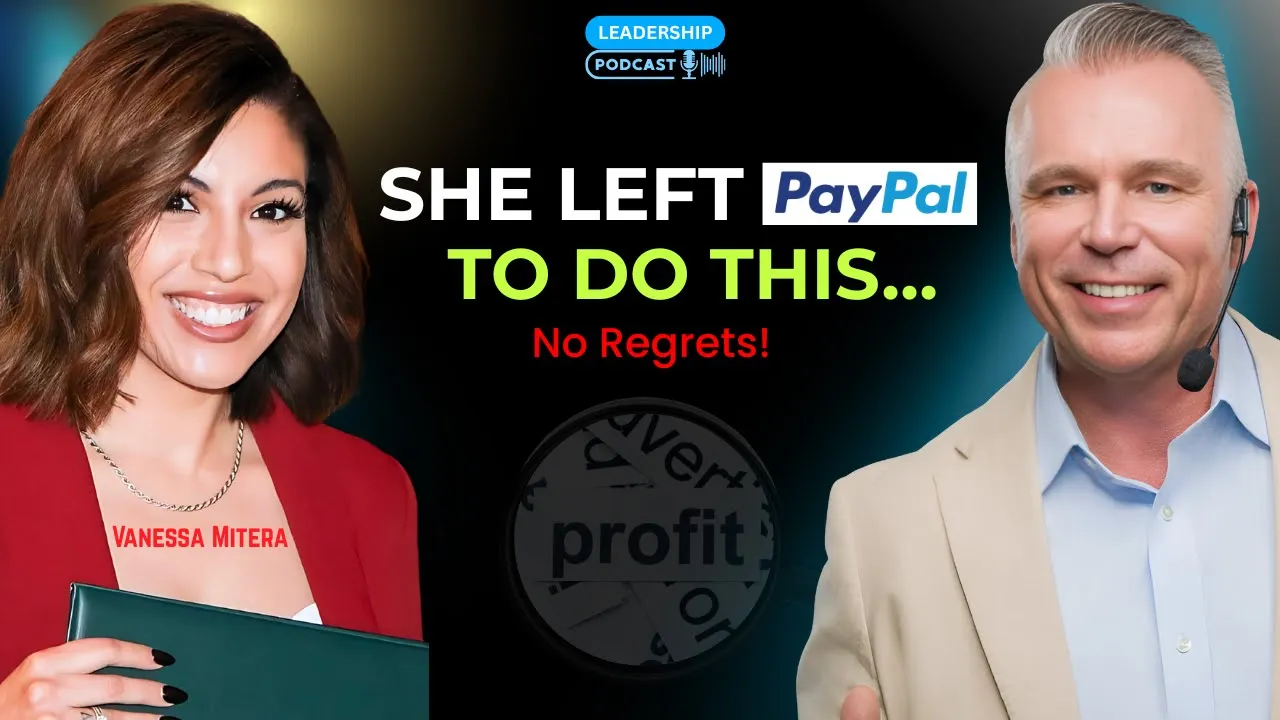In the latest episode of Boardsi Leadership Talks, host Martin Rowinski, CEO of Boardsi, sits down with Rushi Adhia, the dynamic founder and CEO of 72 Cubes and COO of IP Burger. Rushi’s journey from earning $300 a month to leading multiple successful ventures is nothing short of inspiring. This episode is packed with valuable insights on entrepreneurship, team building, and the importance of mentorship.
From Humble Beginnings to Entrepreneurial Success
Rushi Adhia’s entrepreneurial journey began during his undergraduate years in 2012. As a founding member of his university’s entrepreneurship cell, Rushi was inspired by mentors who provided invaluable lessons on the intricacies of entrepreneurship. His first venture, an online platform for exchanging books among students, taught him crucial lessons about scaling and revenue generation, even though it eventually closed down.
After college, Rushi worked as a developer in a small startup, where he gained hands-on experience in coding, client communication, and lead generation. This foundational experience paved the way for the creation of 72 Cubes, a web development and design agency specializing in SaaS companies. As the agency grew, Rushi also took on a significant role at IP Burger, starting as a developer and rising to COO.
The Importance of Team Building
One of the key takeaways from Rushi’s story is the importance of building a strong team. Whether at 72 Cubes or IP Burger, Rushi emphasizes the need for effective delegation and creating a culture where team members can grow into leaders. He shares practical strategies for team building, such as creating an employee persona to identify the right candidates and preparing a set of Standard Operating Procedures (SOPs) to streamline delegation.
Discipline and Daily Habits
Rushi also highlights the role of discipline in achieving long-term success. Drawing inspiration from books like “The Compound Effect” and “Micro Habits,” he underscores the importance of making small, consistent decisions that align with one’s long-term goals. These daily habits and disciplines, he believes, are crucial for both personal and professional growth.
The Role of Mentorship
Mentorship has played a significant role in Rushi’s journey. He likens having a mentor to taking an escalator instead of climbing stairs, accelerating one’s growth and providing valuable guidance. Rushi advises aspiring entrepreneurs to define their goals clearly and seek mentors who have achieved what they aspire to. He also encourages reaching out to potential mentors without fear, as many successful individuals are willing to give back to the community.
Overcoming Challenges
Every entrepreneurial journey has its challenges, and Rushi’s is no exception. He shares a particularly tough period when 72 Cubes had only two months of runway left. By focusing on lead generation and taking smaller contracts, the team managed to sustain the business and eventually scale up again. Rushi’s transparency and vulnerability during this time helped build trust with clients and secure crucial contracts.
Balancing Work and Personal Life
Despite his busy schedule, Rushi makes time for his passions outside of work. He and his wife love traveling, which allows them to meet new people, learn about different cultures, and discover real-world problems. Rushi also enjoys reading books, which he considers a major part of his weekly routine.
Conclusion
Rushi Adhia’s journey from a modest beginning to leading multiple successful ventures is a testament to the power of resilience, effective team building, and the importance of mentorship. His insights on discipline, daily habits, and overcoming challenges provide valuable lessons for aspiring entrepreneurs and seasoned executives alike.
Tune in to this episode of Boardsi Leadership Talks to hear more about Rushi’s inspiring journey and gain actionable insights to apply in your own entrepreneurial endeavors. Don’t forget to subscribe for more inspiring conversations with industry leaders.
Martin Rowinski (00:01.006)
Welcome to another inspiring episode of Boardsi Leadership Talks. I’m your host, Martin Rowinski CEO of Boardsi. Today, we have a remarkable guest. With us is Rushi Adhia Rushi is the founder and CEO of 72 Cubes, a successful seven -figure agency business, and COO at IP Burger, a leading proxy company.
Rushi has risen from $300 a month job to building multiple thriving businesses. He’s also a TEDx organizer and a passionate blogger. Rushi, welcome to the show.
Rushi Adhia (00:44.641)
Thank you Martin, thank you for hosting me here.
Martin Rowinski (00:47.886)
Awesome. Very, very excited Rushi and your journey from a humble beginning to running not one but multiple successful ventures is truly inspiring. Can you start by telling us a little about your early days and what motivated you to embark on this entrepreneurial journey?
Rushi Adhia (01:09.089)
Okay, so when I started my undergraduate course back in 2012, since then I was motivated to pursue this career of entrepreneurship. And since then I was one of the founding members of the entrepreneurship cell at my university. And from there everything began. Al Koch, he was…
very motivating he was giving us lessons about entrepreneurship and how everything works he was giving us ideas about good and bad things about entrepreneurship and that’s how we started and the journey of entrepreneurship during my college days I was doing some freelancing work and then as a student entrepreneur we started our own you know online platform for exchanging books so if you are a student and
Let’s say you completed your semester, then you can give your books to your juniors. So you’ll get some money and your juniors won’t have to pay higher for the books, right? So that’s that was my first venture, which eventually we closed down by end of 2016 when I was about to pursue my other career. So that was one period that taught us a lot. We had about 2500 users in that, but somehow we were not able to scale in terms of revenue.
And that was a good learning. So I then actually started, you know, with a job out there as a developer in a very small startup company, we were just four people in the office, including one founder member. And we just started from there. I learned everything starting from coding to, you know, client communication, lead generation and everything into the startup company.
Martin Rowinski (02:37.934)
Hehehe
Rushi Adhia (03:01.953)
And then I decided to have my own venture called 72 cubes, which is a web development and web design agency. We work specifically with SAS companies. Slowly and visually, people started joining our agency. We got started getting new clients. And here we are now with this seven figure agency. And meanwhile, scaling up this agency, I got an opportunity to work with this company called IP Burger.
So I started at a very low position as a developer and here I am today as the CEO of the company and I’m leading all the operations with Hyper -V.
Martin Rowinski (03:45.678)
Awesome. Sounds like a exciting time from college to where you’re at now.
Rushi Adhia (03:51.137)
Yeah, pretty ups and downs, but you know, that’s the part of entrepreneurship.
Martin Rowinski (03:57.166)
That is 100%. So between 72 cubes and your significant role at IP Burger, what were some of the pivotal moments that helped you scale these businesses? I mean, especially at IP Burger, you said you started as developer and here you are a CEO.
Rushi Adhia (04:20.097)
So one thing I believe is the team. Both you consider 72Qs or you consider IQburger. In both cases, what happened is I was fortunate enough to have the authority to build my own team, 72Qs being my own agency at IQburger. I was one of the first members to join IQburger as an employee at that time.
which now is more of a contractual thing as well as I’m a partner with them now with a small amount of equity and that’s where you know it gave me all the authority to form a team and as a leader your responsibilities is to build a strong team and you create more leaders that’s where you know I believe I was able to scale up both these things together.
Martin Rowinski (05:15.694)
That’s awesome. And building and leading a team is crucial, obviously, for any entrepreneur. Can you share some leadership techniques and team building strategies that have worked well for you?
Rushi Adhia (05:30.173)
So first thing is, you know, while building the team, most of the entrepreneurs or the leaders like when they’re getting started with building their team, I think the first five employees, one of the major challenges that I’ve seen their face is delegating tasks, which is very well important. So I’ve prepared a set of kind of an SOP that I usually share it with my clients, with the people who I’m consulting. And we started this way.
Let’s say you are doing 20 tasks, then you need to take a simple plain blank paper, divide it into four parts. The first section is the tasks that you do on daily basis. The second section is the tasks that you do on weekly basis, seen for likely visas and monthly basis. Now, let’s say you made a list of 20, 25, 30 tasks that you are doing by yourself or let’s say both.
founders are doing it together. Then, you know, now it’s time to select 10 % of the tasks if you’re doing it for the first time. But if you’re an experienced person, you have created teams and things, then you can go with, you know, pretty 25 % of tasks. Shortlist them, the tasks that you want to delegate at the first go and then create an employee persona. Like we create customer persona, we need to create an employee persona.
that will, you know, enable us to have it written down on how a team member should be. So this employee persona will include their behavior, their characteristics, their skills and their experience. So once you are done with this employee persona or the team member persona, now it’s time to, you know, look out for like candidates, post out jobs and you know, ask for references and stuff. And that’s how you…
get initial few team members and you start delegating. So that’s the first part of delegation, which everyone should be clear like if they’re building a team and then the second part comes as a leader. Like whenever you have team, the way you work, the way you were initially working as one member or two members or even a five member team and when the team grows, the work culture.
Rushi Adhia (07:55.169)
has to be there, the delegation culture has to be there and as a good leader, your responsibility is creating more leaders, how you can find one of your team members to be a leader and let them handle a few things.
Martin Rowinski (08:09.39)
Yeah, absolutely. Duplicate. Encourage leadership, right?
Rushi Adhia (08:12.481)
Yeah.
Rushi Adhia (08:16.161)
That’s true. Like if you are the one who is, you know, like taking all the decisions, you know, I myself am poking my nose into every little thing in the business. That’s not going to work when we try to scale. You need people to make decisions.
Martin Rowinski (08:26.318)
haha
Martin Rowinski (08:30.799)
Absolutely. And I know you’re pretty, pretty strong about discipline. What are some discipline building techniques and daily habits that you believe are worth implementing in life?
Rushi Adhia (08:46.913)
So there are a lot of books available in the market regarding discipline and habits and everything but there are a couple of books that are my favorite and I see those are the you know core principles that I have followed in my life one being the compound effect and the other is micro habits so let’s say when you are getting started with something
There has to be a particular habit, a particular discipline that you want to get started with. And in that case, you know, you need to understand like whatever decisions you make today is going to be deciding your future life where we both are today or we all of us are today is only based on the decisions that we have taken in the past, good or bad, but we are here right. And now it’s time like we take these decisions carefully so that’s
to design the lives that we want, that we desire. So whatever decisions we make today, you know, we need to understand like, okay, I’m small decisions, even like, you know, having desert after your dinner is something if you have it in your core mindset, like, okay, I’m going to have desert every day after the dinner. It’s like, okay, I’m going to have desert every weekend after the dinner.
You know, your mind functions that way. Your actions are accordingly done. So if you have this compound effect in mind, okay, what I’m doing today, what decisions I’m making today is going to affect my personal life or professional life in the upcoming years. And if this is already fit into your mind, if it’s already there in your mindset, if it’s already there in your behavior, then you know, habits and disciplines come automatically. Then it’s not pretty much difficult. But if you…
Like if you don’t understand, you know, this basic things on how our decisions is going to be impacting our lives. That’s where the problem comes in.
Martin Rowinski (10:50.126)
Yeah, I need the discipline of not eating dessert.
Rushi Adhia (10:54.337)
Hahaha!
Martin Rowinski (10:55.726)
That’s the discipline I need that because you know, if you eat dessert every night, I know what’s going to happen. I know, I know the end result. Exactly. So what, what role has mentorship played in your journey and what advice would you give to aspiring entrepreneurs looking to follow in your footsteps?
Rushi Adhia (11:02.817)
Cool.
It’s gonna be a nightmare.
Rushi Adhia (11:24.481)
So mentor is more like you know for example if you are trying to let’s say go to the 20th floor and if you start climbing the staircase that’s what you are doing by yourself but let’s say if you’re a mentor it’s more like you never go to an escalator you know how easy it would be how faster would it be to scale to the 20th floor that’s what I believe is a lot of a mentor and you know
in an individual’s life. It’s not only about entrepreneurs, even executives can have right mentors and they can scale up faster. So if someone is getting started or if someone has just started the journey of entrepreneurship or being an executive, here is how they can actually find a mentor or how they can define a mentor. So first thing is you need to…
define who is going to be your mentor. Let’s say I’m running in agency business doing let’s say XYZ dollars a year. Now I need to focus like where I want to be. So if my goal is to be at the 10X revenue by the end of let’s say five years, I would want my mentor to be there like 20X where I am right now.
So if I’m learning from the right people, if I’m, you know, having them as a mentor, that will be my escalator. And most people, what they feel like, even like when I was in my starting days, I would always fear to ask someone for mentorship and especially someone as big who is, you know, 10 X 20 X better than me. The first thought that an entrepreneur would get is how much will he charge? What if my pockets, you know, go empty?
But it’s not the usual case like whenever I reached out someone for mentor and more than 70 % of cases I have got very polite replies on them. Either it’s yes or no and both cases and even if someone says no, they are always ready to give you like 15, 20 minutes, 30 minutes of your time for discussion, right? And like whenever you reach out to them, whenever you ask them like, okay, this is what I need. This is why I need you as mentor. I believe there are a lot of people who are ready.
Rushi Adhia (13:48.545)
to give back to the society. That’s what their ideology is. And first thing is like you always need to have a persona of who your mentor has to be. Second is you need to have clear ideas or clear goals of what you want to learn from them. That’s a very basic step. Like if I reach out to a mentor and he asked me like, OK, how can I help you? I’m like, man, I don’t know how can you help me? But I want you as a mentor. That’s not going to work.
Martin Rowinski (14:18.702)
Yeah, yeah, not only that, and it’s not, you know, sometimes you can have a mentor, and there is no fee to it. But if you’re paying for that mentorship, it’s more of a coach. And it could be a business coach, executive coach. But at the end of the day, it’s not what you’re paying. It’s what am I getting out of this? And is it? Is it worth it? What is the you know,
Rushi Adhia (14:42.529)
Exactly.
Martin Rowinski (14:45.55)
I mean, everybody’s more interested about ROI than anything else. So, there’s a fee for everything. So, you know, including time, right? You’re spending time with a mentor. Even if you’re not paying anything, you’re still paying with your own time. So, don’t waste your time. Make sure you’re getting something out of it. And sometimes it’s a mutual relationship, right? So, you’re not only growing, but mentors can also learn and benefit from that as well. So,
Rushi Adhia (14:55.169)
See you.
Martin Rowinski (15:15.406)
I think mentorship is awesome. Now, every entrepreneur journey, obviously as exciting as it is when it is good, there’s also downtime, right? We struggle, we go through our things. Could you tell us about some significant challenges you faced and how you tackled them?
Rushi Adhia (15:36.329)
In the introduction, I mentioned how we started as a student entrepreneur, the online book exchange platform, and we had to shut it down, but that was at a minor scale. So I’ll talk more about later on stage where I was an experienced executive and had some experience, and then I jumped into entrepreneurship again. So that’s where I, and my agency business of 72 cubes.
At some point of time, we made some mistakes and we hired people at higher P skills that were not required at that point of time, but we focused down the line of six months to one year. And then the business did not scale up accordingly. And like every month we were reviewing books, we were reviewing bank accounts and other sites and everything.
And the graph was going down. And at some point of time, we only had two months of runway left for our company. And after two months, we would not be able to sustain. We would not be able to pay our employees. We would not be able to pay utility bills, our rents, our partners. That was a time when we were on the verge of either like,
to a die like either you shut down your business or there’s something you have to do in this two months that you scale up. So that was a point where I started making some notes because I know this is the downtime. I know I’m going to rise up, but when I rise up, I need to have a list of what not to do and what to do when I rise up again. And there were other few points that we also kept in mind like.
For example, if you are having a team of let’s say 5 people, 10 people or 100 people, your bank account should have at least 3 to 6 months of their salary. So even in the worst times, you don’t have to ask your employees like, okay, you have to work for free or either you have to leave because we don’t have money. Because if your team is not there, like it will be difficult for you to scale up again, right? So we made a note like, okay, this is the first thing when we scale up back.
Martin Rowinski (17:49.838)
Heh.
Rushi Adhia (18:00.321)
First thing have at least three months of employee salary in our bank account, savings account that will be lying over there and we won’t be touching it anytime. That was the first thing I made a note of while you know, I started preparing all the notes. So now coming to like scaling up from this down point. Like when you are at this point, you know, I’m sure you might also have faced some situation during your
journey. So like when you are at this point, you’d have nothing to lose. Like you have already prepared like, okay, my company is going to shut down. I need to find something else. I need to ask my team to live. So there’s nothing more to lose. And that’s where your self confidence has to be strong. And that’s where, you know, we started what we asked is we asked our developers, we asked our marketing team to get together and asked everyone.
to just do marketing and lead generation. Even my developers were like, okay, let me learn how lead generation works. And they were reaching out to a lot of people on LinkedIn. They were reaching out to a lot of people by email. And, you know, we started some ads and everything. And we also started taking a few smaller contracts that we usually don’t take just so that we can get some cash flow. But down the line of six months by working some smaller contracts.
you know, we were able to sustain and then we got a major client out there that had the sustain and I was like pretty clear to them. I was vulnerable. I clearly mentioned to them my feelings like, okay, hey man, like I’m glad you joined my call and this is the point where we are like we are about to shut down the company, but we started taking a few smaller contracts and here we are today like we are able to sustain the six months.
And now if I get this contract from you, we’ll be able to sustain. That was vulnerable. I mentioned my feelings to them. I mentioned where we were. And of course, everyone is a human, right? Everyone has that humanity. And he was like, let’s do it, man. I’ll give you one month’s advance money if you want. And that’s where we sustained. We scaled up again.
Martin Rowinski (20:25.23)
That’s awesome. Gotta be strong and gotta get through it. So obviously, you’re busy at 72 cubes, you got IP Burger. So when you’re not working, when you’re not building a business, what hobbies or interests do you pursue?
Rushi Adhia (20:46.689)
I and my wife, we both love traveling, traveling a lot. We have been to a lot of different countries out there. We have been to, you know, like we have traveled here domestically a lot and usually like to go on, you know, long trips, like 18 days, 20 days, months. And at times we also work from there, at times like that’s a hundred percent off, but those are like only a few days.
But usually traveling is something that we love to do and that’s where we meet a lot of people. We get to know about a lot of cultures. We get to know about a lot of people’s daily lives, what they’re doing in their daily lives. And that’s when you actually find out the real world problems. That’s where you actually meet the people who are solving this real life problems. You meet…
10 different people doing 10 different businesses in 10 different ways and you can learn from them how they are working, what their work culture, how they are scaling and so on and so stuff. And other than traveling, I personally like to read books. That’s one of my major, you know, time consumption almost every week.
Martin Rowinski (22:02.446)
That’s your escape.
Rushi Adhia (22:04.353)
Yeah, that’s me.
Martin Rowinski (22:05.646)
Awesome. Rushi, it’s been an absolute pleasure having you on the show. Your journey and insights are truly inspiring. And thank you again for joining us.
Rushi Adhia (22:20.929)
It was an honor joining you Martin. Thank you for having me.
Martin Rowinski (22:25.198)
Awesome. And to our listeners, thank you for tuning into Boardsight Leadership Talks. Don’t forget to subscribe for more inspiring conversations with industry leaders like Rushi. And until next time, thank you.









